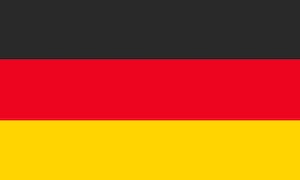The German gambling regulator says the country's illegal market was worth between €400m and €600m in gross gaming revenue in 2023, noting that tackling unregulated offerings remains a “challenging task.”

The GGL said 2023 enforcement action against the illegal market is “having an impact," with payment blocking proving to be a “particularly effective enforcement tool” against illegal providers.
The regulator said it processed 438 cases of suspected illegal gambling or advertising of illegal operators, with 1,864 websites checked and prohibition proceedings being initiated in 133 cases.
Of those 133 cases, 63 black market operators either stopped their services or had advertising for their operations stopped by advertisers.
Criminal charges with public prosecutor offices were filed in 104 cases and the GGL said “numerous offers have already been stopped as a result of letters of advice from the GGL, particularly in the area of advertising for illegal offers.”
IP blocking for illegal providers was not used due to “legal developments,” the GGL said, with board member Ronald Benter admitting that the “challenging task” of cracking down on illegal providers is made harder “as the players in the illegal market operate internationally.”
The GGL said gross gaming revenue of the illegal market in Germany in 2023 was between €400m and €600m.
Elsewhere, the GGL said regulated GGR has increased by two per cent to €13.7bn in 2023, with 22 per cent (€3bn) generated by online gaming.
The market share of the providers for which the GGL is responsible as a whole, in GGR, was approximately €3.5bn in 2023, or 26 per cent of the total market.
Sports betting accounts for the largest share of the GGL’s area of responsibility, with GGR of €1.8bn, including horse betting on the Internet, which translates to growth of around €400m over the previous year.
Benter added that the GGL is considering adjusting application processes for individual games in the virtual slot machine game vertical.
“We are constantly looking into ways to optimise administrative processes,” Benter said.
“One way to speed up the application process could be to directly involve the game manufacturers, the development studios, in the application process for the approval of individual games. That would speed up the process considerably.”

